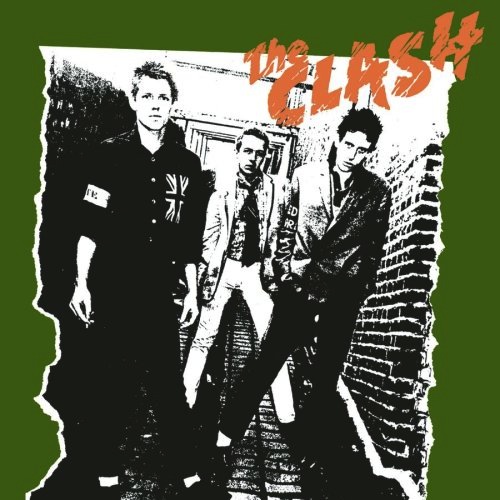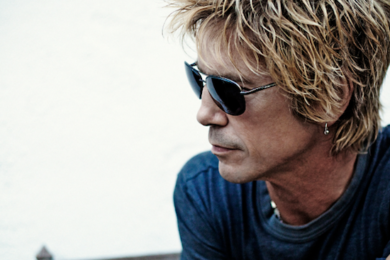13. The ClashThe Clash [US version]

I got that record from my brother-in-law for Christmas – we have this huge family and so we were picking names from a hat and whoever you got the name of you bought a present for. My brother-in-law was this cool fucking dude who listened to college radio and he got me that first Clash record and I got to see them later that year so I guess it was Christmas 1978. We had the US version, it was just called The Clash with the green cover – you knew that if you were American, ‘cos we were like, "we cant get the real fucking English version" – I mean they had it on import, but it was so expensive.
I don’t know what my musical life would have been like if I didn’t get to see that gig. It was really exotic for that band to come and play Seattle. The whole Seattle community was there and it was probably only 200 people but it felt like everybody in the world was there. I remember there was this wooden barrier and this security guy in front of the pit who didn’t know how to deal with a punk rock audience, and he just decked this kid and broke his nose and The Clash just stopped the gig. And Paul Simonon or someone grabbed an axe and broke down the barrier! And I remember Joe Strummer saying, "there’s no difference between us and you guys, these barriers and shit are separating us", and it suddenly dawned on me. They were totally against the whole rock star thing, like there’s not us and there’s you, it was like we were all in this together.
I guess I’d be lying if I said in the nineties I didn’t have… not ‘punk rock guilt’ exactly, but there would be a lot of bands that came up, like Soundgarden and Pearl Jam, there were guys who were in the punk rock scene and this was what was next, and as a young dude you feel a little guilty when you’re suddenly selling millions of records. But no-one sold their soul or changed their fucking tune, this was what evolved out of punk rock. Looking back it was a natural progression. Guns was a mix of a lot of different input, punk rock, seventies rock, and it was about doing something different and maybe that’s what punk rock sounded like at that point, I don’t know (laughs). I mean Guns was as DIY as it got, we would hitchhike 1,200 miles to get to a gig but we just went to the next level in getting a major label deal, that was the big change. But I took that ethic with me that Strummer had said. I don’t know any different, I’m honoured to be playing gigs and I’ve always paid tribute to that way of thinking.


